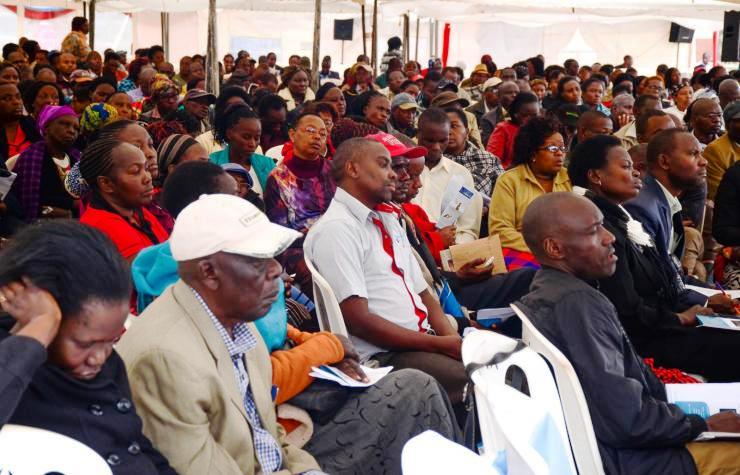An initiative of the Huruma Self-Help Group, it makes credit accessible to that segment of the population excluded from formal economic circuits. It all started in the Christian communities of Kariobangi, a suburb of Nairobi.
In 1991 Verona Huruma Savings and Credit Cooperative (VH Sacco) was founded. It is an informal savings group made up of 15 people who meet regularly in one of the small Christian communities of the Comboni mission of Kariobangi, in one of the difficult suburbs of Nairobi, more precisely in the Huruma area. It is a common practice among the most disadvantaged social classes on the outskirts of Kenyan cities, a practice that is called “merry-go-round”, that is, a small carousel that spins and makes people happy.
Each week, each member of the group deposits a small amount and the members take turns collecting contributions. In this way, each member of the group manages to generate a small amount of capital to satisfy needs or make small investments that otherwise would not be possible.
Huruma’s group works well and has grown, so much so that in 1994 it transformed into Huruma Self-Help Group, a formally constituted mutual aid group. The conviction, based on experience, is that even small sums can make a difference in the living conditions in which many people in the suburbs of Nairobi find themselves. The group is enjoying rapid success thanks to the large social capital of trust and integrity linked to the parish context. Thus, the residents of the area mobilize en masse and join the association to protect family savings and facilitate access to credit.
The self-help initiative makes credit accessible to that large part of the population who are unable to obtain it from the formal banking sector, as they have a minimal, unstable income and live in conditions of great vulnerability. This model is so successful that in 2013, thanks to its great expansion, it managed to make an important leap forward: the project is transformed into SACCO (a savings and credit cooperative), with the possibility of also making investments. In 2017, there was a further step: from the local dimension to the national scale.
Today, the cooperative has over 15,000 members from various social backgrounds and offers a wide range of services: first of all, the collection of savings (in the form of shares in the cooperative’s capital, which can only be withdrawn by leaving the cooperative) and various subsidized loan arrangements; from loans covered by a guarantee (at an interest rate of 0.8%), to those guaranteed by other shareholders (at a rate of 1.28%), to those self-secured by one’s own shares, to instant loans through a mobile app.
And all this is in the face of a banking loan market with interest rates ranging from 8% to 12% on average. In addition, the cooperative pays its members dividends on savings. Financial and real estate investments have become an important part of the balance sheet. In particular, investments in land and residential properties make this market accessible to shareholders, thanks to fair and long-term rates, as well as economies of scale. This factor has significantly contributed to the opening of the cooperative beyond the borders of Kariobangi-Huruma. Furthermore, the social dimension of the cooperative’s activity also emerges in the insurance and financing plans for healthcare costs, in a scholarship program for needy children and young people, and in a corporate social responsibility initiative that addresses the needs of the most destitute.
A fount of trust and integrity, since the beginning of its journey, the group has been concerned with providing support to the Church, sharing its evangelical values and acknowledging that it expresses that social capital of trust and integrity which values every social action. In fact, open spirituality – which welcomes everyone regardless of socio-cultural and religious affiliations – is not a secondary aspect of the organization’s journey.
The budgetary results of the initiative are truly significant. Dividends in recent years (before the Covid-19 pandemic) were over 13%, with a capitalization of 1.4 billion shillings (about 13 million dollars, between shares and investments) despite the strong competition, the recurring economic crises over the years, and inflation. But what matters most is the ability to know how to respond to the needs of those who normally remain excluded from formal economic circuits. And the social impact of the cooperative’s activities is there to testify to the effectiveness of this initiative. (Alberto Parise – Assembly of Huruma Self-Help Group members)






